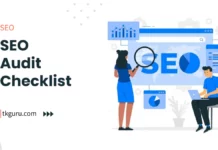Advertisements
Ratings

Off-Page SEO – In the vast landscape of SEO (Search Engine Optimization), off-page SEO emerges as a powerful strategy that goes beyond your website’s confines to establish its authority and credibility on the broader digital stage.
Among the myriad of off-page techniques, the role of quality backlinks shines remarkably.
In this comprehensive guide, we will delve into the intricacies of building quality backlinks, understanding their significance, and mastering the art of off-page SEO that propels your website towards the forefront of search engine rankings.
Contents
1. Understanding Backlinks
1.1 What Are Backlinks?
Backlinks, also known as inbound or incoming links, are references from other websites to your own. These links serve as a validation of your content’s credibility and relevance.
In essence, when another website links to your content, it’s akin to them vouching for the quality of your information.
1.2 Types of Backlinks
Understanding the types of backlinks is crucial in grasping their impact and relevance.
- Dofollow Links: These are the standard backlinks that pass authority from one page to another.
- Nofollow Links: These links include a rel=”nofollow” attribute, indicating to search engines not to pass authority.
Moreover, backlinks can be categorized based on their origin and nature:
- Natural Backlinks: Links that are earned organically due to the quality of your content.
- Editorial Backlinks: Links that are voluntarily placed by website editors as a reference to valuable content.
- Acquired Backlinks: Links obtained through various strategies like guest blogging, influencer outreach, and more.
2. The Importance of Quality Backlinks
2.1 Search Engine Ranking
Quality backlinks play a pivotal role in search engine algorithms. Search engines view these links as a measure of a website’s authority and relevance.
The more high-quality backlinks your site has, the more likely it is to be considered valuable and deserving of a higher ranking.
2.2 Traffic and Referral Benefits
Backlinks not only influence your site’s visibility on search engines but also have a direct impact on referral traffic. When a user clicks on a backlink on another website and lands on your site, this can result in a steady stream of visitors interested in your content.
3. Building Quality Backlinks
3.1 Guest Blogging
Guest blogging is a powerful strategy to earn quality backlinks. By providing valuable content to other reputable websites, you gain exposure to their audience and secure a backlink in return.
Steps to Effective Guest Blogging:
- Identify Reputable Blogs: Choose authoritative blogs in your niche with a substantial following.
- Craft High-Quality Content: Create well-researched, engaging content that offers value.
- Pitch Your Ideas: Reach out to the blog with a compelling pitch, showcasing your expertise.
- Include a Relevant Backlink: Ensure the backlink is contextually relevant to the content.
Table 1: Examples of Guest Blogging Opportunities:
| Niche | Target Blogs |
|---|---|
| Travel | Travel magazines, destination guides |
| Tech | Tech blogs, software review sites |
| Health | Wellness websites, fitness blogs |
3.2 Influencer Outreach
Collaborating with influencers not only enhances your brand’s visibility but also opens doors to acquiring quality backlinks.
Steps for Influencer Outreach:
- Identify Influencers: Locate influencers with a strong online presence in your industry.
- Engage and Build Relationships: Interact with influencers on social media to establish rapport.
- Offer Value: Propose collaborations that benefit both parties, such as guest posts or joint webinars.
- Secure Backlinks: Request backlinks in guest posts or within influencer-created content.
Table 2: Examples of Influencer Collaboration:
| Niche | Influencer Opportunities |
|---|---|
| Fashion | Fashion bloggers, Instagram influencers |
| Food | Food critics, chefs |
| Finance | Financial advisors, investment gurus |
3.3 Broken Link Building
The broken link building technique involves identifying broken links on other websites and offering your content as a replacement.
Steps for Broken Link Building:
- Identify Relevant Sites: Look for authoritative sites in your niche with broken links.
- Locate Valuable Content: Find content on your site that can replace the broken link.
- Reach Out: Contact the website owner, informing them of the broken link and offering your content as an alternative.
Table 3: Examples of Broken Link Building Opportunities:
| Niche | Target Sites with Broken Links |
|---|---|
| Education | Educational institutions, resource pages |
| Home Improvement | DIY blogs, home renovation websites |
| Marketing | Marketing blogs, industry news sites |
3.4 Content Promotion
Creating exceptional content is just the first step; promoting it effectively can lead to natural backlinks.
Ways to Promote Content:
- Social Media Sharing: Share your content across your social media channels.
- Email Outreach: Reach out to your email subscribers, encouraging them to share the content.
- Collaboration: Partner with other websites or bloggers to cross-promote content.
Table 4: Examples of Content Promotion Channels:
| Content Type | Promotion Channels |
|---|---|
| Infographics | Visual platforms like Pinterest and Instagram |
| Blog Posts | LinkedIn, industry-specific forums |
| Videos | YouTube, Vimeo |
4. Avoiding Black Hat Practices
4.1 Link Buying and PBNs
While the allure of quick results may tempt some, it’s crucial to avoid unethical practices like buying links or relying on Private Blog Networks (PBNs).
- Link Buying: Paying for links is against search engine guidelines and can lead to penalties.
- Private Blog Networks (PBNs): PBNs involve creating a network of low-quality sites to manipulate rankings.
4.2 Link Spamming
Link spamming involves excessive, low-quality link-building tactics, which can result in search engine penalties.
- Forum and Blog Comments: Irrelevant comments with links in forums or blog posts.
- Article Directories: Submitting articles to low-quality directories for the sole purpose of gaining backlinks.
5. Monitoring and Evaluating Backlinks
5.1 Backlink Quality Metrics
Assessing backlink quality involves considering metrics like Domain Authority (DA) and Page Authority (PA).
- Domain Authority (DA): A metric developed by Moz that predicts a website’s ranking potential.
- Page Authority (PA): Similar to DA, but it predicts the ranking potential of individual pages.
5.2 Google Search Console
Google Search Console provides valuable insights into your backlink profile, allowing you to monitor and evaluate links.
Steps to Use Google Search Console:
- Add and Verify Your Site: Add your website to Google Search Console and verify ownership.
- Access the Links Report: Navigate to the “Links” section to view your backlink data.
- Disavow Low-Quality Links: If necessary, disavow harmful or irrelevant backlinks.
6. Disavowing Harmful Backlinks
Disavowing backlinks involves informing search engines not to consider certain links when assessing your site’s credibility.
Steps to Disavow Backlinks:
- Create a Disavow File: Prepare a text file containing a list of URLs or domains you want to disavow.
- Upload the File: Access Google’s Disavow Tool, upload the file, and submit it.
7. The Future of Backlinks and Off-Page SEO
As search engines continue to refine their algorithms, the significance of backlinks may evolve.
Factors like user experience and social signals might play larger roles in determining search rankings.
Conclusion
In the intricate world of SEO, the journey beyond your website’s confines is marked by off-page techniques that wield remarkable influence.
Building quality backlinks stands as a formidable strategy to enhance your website’s authority, boost search engine rankings, and attract a steady stream of organic traffic.
As you embark on this journey, remember that ethical and strategic practices are the guiding lights, ensuring long-term success in the ever-evolving realm of off-page SEO.
Off-Page SEO FAQs
What is off-page SEO?
Off-page SEO refers to the activities and techniques performed outside of your website to improve its search engine ranking and online visibility.
It involves building a strong online reputation, acquiring quality backlinks, and engaging with the online community.
Why is off-page SEO important?
Off-page SEO plays a crucial role in search engine rankings because search engines consider factors beyond your website's content and structure.
Off-page factors, such as backlinks from authoritative websites, social signals, and brand mentions, demonstrate your website's credibility and relevance.
What are backlinks and how do they impact off-page SEO?
Backlinks are links from external websites that point to your site. They serve as a vote of confidence for your content.
Quality backlinks from reputable sources can improve your site's authority and search engine rankings. However, low-quality or spammy backlinks can have a negative impact.
How can I build quality backlinks for my website?
To build quality backlinks:
- Create High-Quality Content: Content that's valuable, informative, and relevant to your industry is more likely to attract backlinks naturally.
- Guest Posting: Contribute guest articles to reputable websites in your niche, including a link back to your site.
- Outreach: Reach out to relevant websites and bloggers to request backlinks or collaborations.
- Social Media: Share your content on social media platforms to encourage others to link to it.
- Influencer Partnerships: Collaborate with influencers or industry experts who can promote your content.
Are social media signals important for off-page SEO?
While the direct impact of social media signals on search engine rankings is debated, social media can indirectly impact off-page SEO.
Engaging with your audience on social platforms can increase brand visibility, drive traffic to your site, and potentially lead to more shares and backlinks.
Off-page SEO is a critical aspect of your overall SEO strategy. By focusing on building a reputable online presence, acquiring quality backlinks, and engaging with the online community, you can improve your website's authority and search engine rankings.
| Web Hosting | Website |
| WordPress | Google Adsense |
| SEO | Affiliate Marketing |
| Blogging | YouTube |
Recent Posts
- Top 6 SEO Companies in Ahmedabad 2024: Unlock Success with the Top SEO Companies in Ahmedabad
- Top 5 SEO Companies in Kanpur 2024: Discover the Top-Rated SEO Companies in Kanpur
- Quality vs Quantity: The Importance of High-Quality Backlinks
- E-A-T and SEO: Expertise, Authoritativeness, Trustworthiness
Related Tags
off-page seo techniques, off-page seo checklist, off-page seo types, off-page seo factors,off-page seo examples, on-page seo, off-page seo for beginners, off-page seo activities






